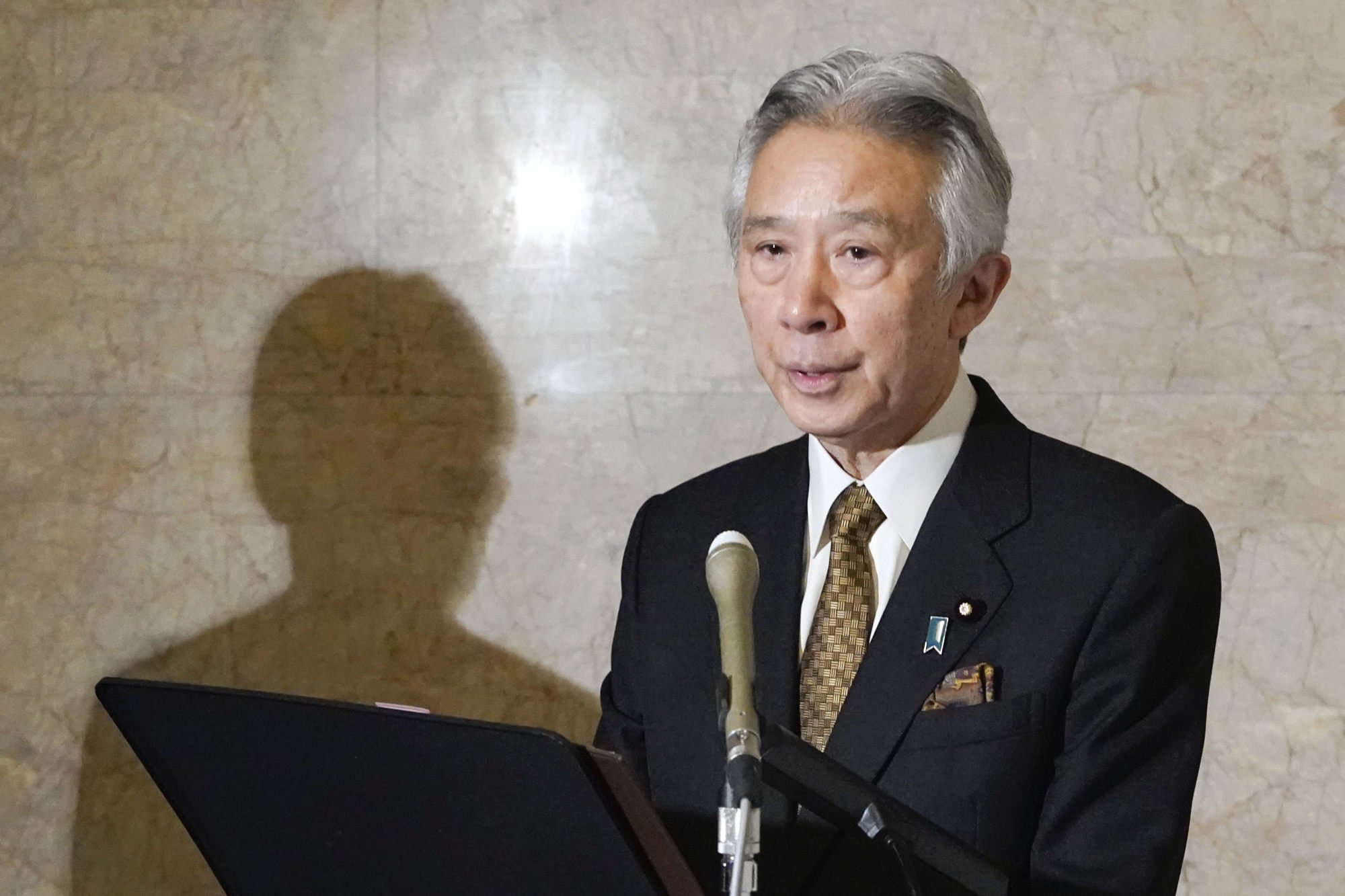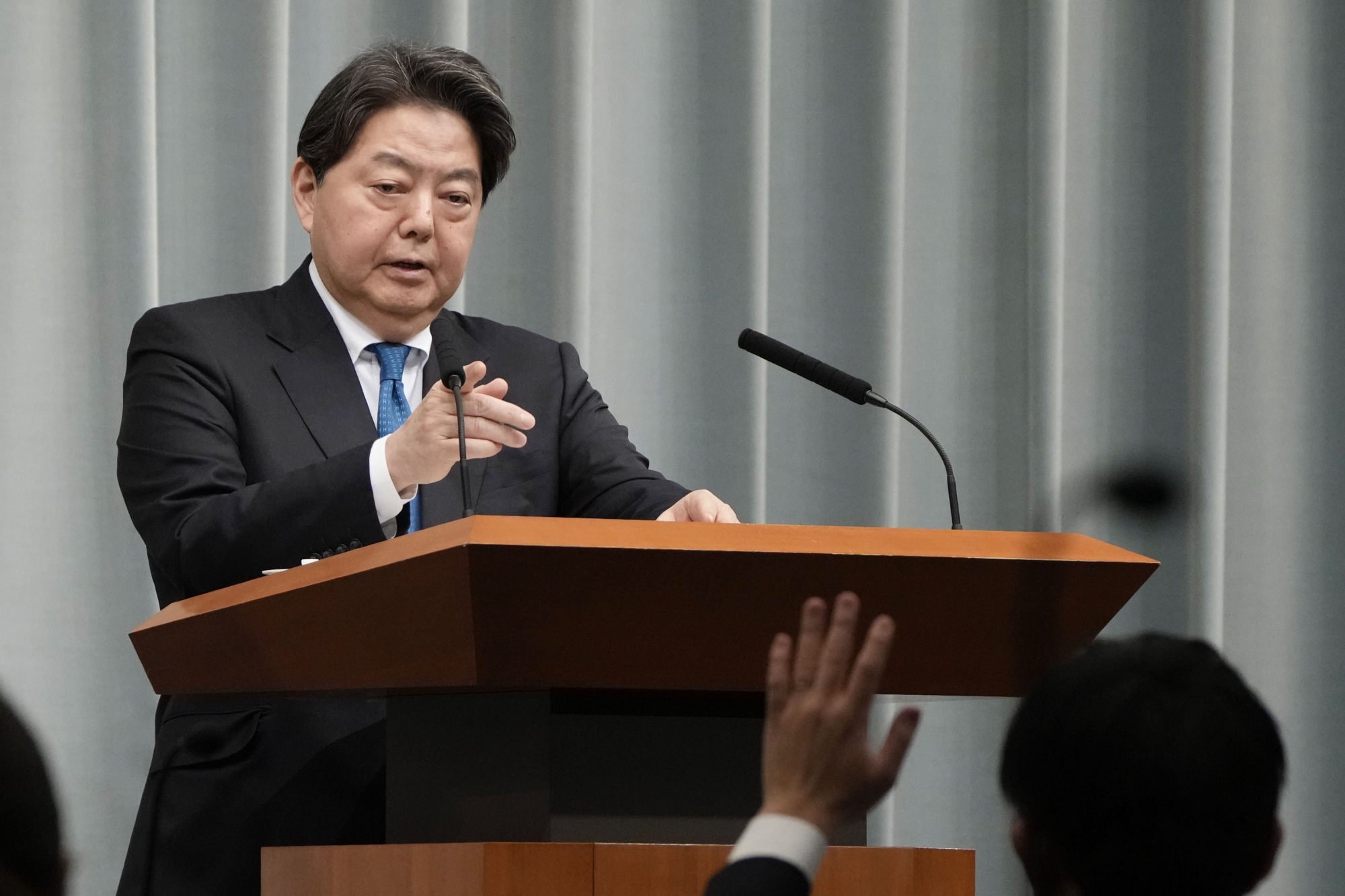
Moriyama also denied signing any form of agreement with the church to promote its policies, although that denial was undermined when opposition politicians released photos of him holding a document detailing the arrangement.
Faced with the evidence, Moriyama weakly replied: “I faintly recall now.”
Hayashi, a former foreign minister under Kishida, admitted on February 7 that he also met representatives of the religious group in September 2021. He denied receiving any political support or financial donations from the group.

The revival of the Unification Church scandal comes at a time when Kishida is still trying to fend off criticism over dozens of LDP members illegally pocketing cash from the sale of tickets for fundraising events and failing to report the money to the party or to tax authorities, with criminal investigations under way against a number of senior politicians.
According to Jeff Kingston, director of Asian Studies at the Tokyo campus of Temple University, Kishida’s administration was badly wounded.
“The Unification Church case saw the party throwing less important politicians under the bus while the bigwigs skated free, but finally the drumbeat from media coverage is forcing the LDP to acknowledge what has long been obvious,” he told This Week in Asia.
“Kishida was supposed to be the man who would come in and champion reform, but he has lost all credibility on that front,” he added.
Can ‘safe’ minister Yoko Kamikawa become new Japan PM as Kishida’s star wanes?
Can ‘safe’ minister Yoko Kamikawa become new Japan PM as Kishida’s star wanes?
For the moment, Kishida is defending his ministers, despite the calls for their dismissal.
The Mainichi newspaper on February 10 published an editorial branding Moriyama as “not fit to serve as culture minister”, adding that his ability to “back-pedal on remarks so easily suggests he does not understand the gravity of statements made in the legislature”.
The left-leaning Asahi newspaper echoed the position that Moriyama’s position is untenable, stating in a February 7 editorial that his inability to recall his own actions “can only further erode the public’s trust in the government” and saying he is compromised because he “obviously owed a lot to the Unification Church”.
The two scandals underline the party’s relative weakness in ramping up electoral support, said Toshimitsu Shigemura, a professor of politics and international relations at Tokyo’s Waseda University, but will inevitably hurt it further when Japan does go to the ballot box again, potentially later this year.
“For some years, the LDP has been weak going into elections, and they have needed the support of Komeito,” he said, referencing the LDP’s political ally in government, which is backed by the Soka Gakkai religious organisation.
“The LDP relies on Komeito to get out voters, and when we look at the Unification Church’s links to the party, it is clear they were looking for help anywhere they could get it,” Shigemura added.
Scandal erodes support for Japan PM Fumio Kishida’s cabinet
Scandal erodes support for Japan PM Fumio Kishida’s cabinet
Kishida’s public support rate was hovering around 22 per cent when the last opinion polls were conducted, although analysts point out that those samples were taken before the links between Moriyama, Hayashi and the Unification Church became common knowledge. The next polls will reflect the public’s thoughts on the issue.
“Kishida is not popular, but I think he is likely to survive simply because there is no obvious successor in the LDP and because the opposition parties are weak and have failed to take advantage of his problems,” Shigemura said.
Kingston agreed, adding: “Kishida could resign, but who would replace him?
“My sense is that he is hoping to ride out the public anger and hopes that something new comes along to distract their attention so nothing will happen,” he said.
“Sometime this year, Kishida will call an election and while I think most voters are disgusted, I still do not think they will vote for the opposition,” Kingston said. “They are just not ready to take over.”

